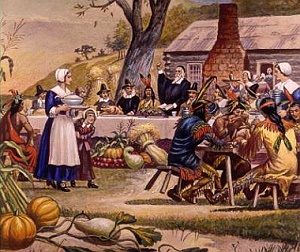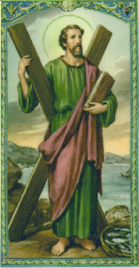We ask you, urgently: don’t scroll past this
Dear readers, Catholic Online was de-platformed by Shopify for our pro-life beliefs. They shut down our Catholic Online, Catholic Online School, Prayer Candles, and Catholic Online Learning Resources—essential faith tools serving over 1.4 million students and millions of families worldwide. Our founders, now in their 70's, just gave their entire life savings to protect this mission. But fewer than 2% of readers donate. If everyone gave just $5, the cost of a coffee, we could rebuild stronger and keep Catholic education free for all. Stand with us in faith. Thank you.Help Now >
Dayton's immigration plan is gaining notice
FREE Catholic Classes
Paint peels off the wood of empty homes, graffiti-covered restaurants decaying with age, and wild cats roam among the overgrown weeds and grass is the view of Dayton's East End. However, less than a quarter mile west of East Third and Bell presents the works of a new life.
Highlights
Catholic Online (https://www.catholic.org)
5/11/2012 (1 decade ago)
Published in U.S.
Keywords: immigration, plan, proposal, city, growth
LOS ANGELES, CA (Catholic Online) - A small Latino community, in Dayton, Ohio, is growing due to cheap housing, lenient immigration enforcement, a goal to boost population and its economy.
"The city has been losing residents for decades with big companies like GM leaving the area," said Francisco Peláez Diaz, a Hispanic Missionary pastor at Dayton's College Hill Community Church and one of the founders of Welcome Dayton, the municipal initiative to attract immigrants. "What is happening is that these immigrants are repopulating the city. What many people are doing is coming, buying vacant houses and fixing them up because housing is very affordable in Dayton."
Dayton flourished as one of the country's manufacturing cities after World War II. The city's population rose almost 16 percent between the years of 1940 and 1950, with another 7.6 percent in the next decade. But as more businesses left for cheaper labor overseas in the 70's and 80's, Dayton's population seemed to wither. In the last 40 years, the city's population went from 243,601 in 1970 to 141,527 in 2010, a 41.6 percent decrease.
The city's economic downfall was caused by the departure of its signature companies in the last ten years. National Cash Register Company, or NCR, opened in Dayton in 1884, and moved to Atlanta in 2009. GM closed its huge Moraine Assembly plant in 2009, which left over 2,400 jobs.
"After GM left it was like a triple effect. said Patricia Rickman, former GM employee and the chair of Dayton's Southwest Priority Board. "All the other factories started laying off, closing up and leaving town. It was really devastating to this city."
After the city's businesses left, unemployment attacked. Currently 10.3 percent of Dayton's citizens are unemployed, according to the U.S. Bureau of Labor Statistics. And as the vanishing population left more and more empty homes, the city saw a solution where others saw a problem: immigrants.
The debate over immigration started with the introduction of strict immigration laws in Arizona, Alabama, and Georgia. While those states adopted the immigration laws, Dayton adopted the "Welcome Dayton" plan. The proposed plan involves ideas to help immigrants start small businesses and companies, have them involved in local government, and have certain health and social services.
"The things these immigrants here are bringing are good things," Peláez Diaz said. "They are rebuilding houses, they are hard working people, they're family oriented and they're bringing energy to the city."
Key points to the "Welcome Dayton" plan is to find and support a business district for immigrants, increase immigrant participation in local governments, increase trust, overcome language barriers, and to review all laws that create barriers that are unnecessary for immigrants. The plan is viewed as a potential model for cities who are facing a similar struggle.
Instead of checking people's immigration status, the city is going along with the proposal as long as immigrants are contributing to the community and not committing crimes.
"I think what you'll find is that other states and cities are reacting to a perceived problem instead of being proactive," Dayton's Mayor Gary Leitzell said. "I've spoken to people who have been here illegally for over 10 years, and they're married with kids and I think the issue then becomes you do them an injustice by deporting them."
"People come here because they want to find the American Dream," Juan Urbieta, who came to the U.S. from Guanajuato, Mexico at the age of 14 in the trunk of a car almost 20 years ago, and is now married, said. "As an immigrant you have to have goals, you have to plan them and you have to go for them."
---
'Help Give every Student and Teacher FREE resources for a world-class Moral Catholic Education'
Copyright 2021 - Distributed by Catholic Online
Join the Movement
When you sign up below, you don't just join an email list - you're joining an entire movement for Free world class Catholic education.

-

-
Mysteries of the Rosary
-
St. Faustina Kowalska
-
Litany of the Blessed Virgin Mary
-
Saint of the Day for Wednesday, Oct 4th, 2023
-
Popular Saints
-
St. Francis of Assisi
-
Bible
-
Female / Women Saints
-
7 Morning Prayers you need to get your day started with God
-
Litany of the Blessed Virgin Mary
Daily Catholic
 Daily Readings for Saturday, November 30, 2024
Daily Readings for Saturday, November 30, 2024 St. Andrew the Apostle: Saint of the Day for Saturday, November 30, 2024
St. Andrew the Apostle: Saint of the Day for Saturday, November 30, 2024 Prayer for Faithful Departed: Prayer of the Day for Saturday, November 30, 2024
Prayer for Faithful Departed: Prayer of the Day for Saturday, November 30, 2024- Daily Readings for Friday, November 29, 2024
- St. Saturninus: Saint of the Day for Friday, November 29, 2024
- Psalm 31 (the Second Penitential Psalm): Prayer of the Day for Friday, November 29, 2024
![]()
Copyright 2024 Catholic Online. All materials contained on this site, whether written, audible or visual are the exclusive property of Catholic Online and are protected under U.S. and International copyright laws, © Copyright 2024 Catholic Online. Any unauthorized use, without prior written consent of Catholic Online is strictly forbidden and prohibited.
Catholic Online is a Project of Your Catholic Voice Foundation, a Not-for-Profit Corporation. Your Catholic Voice Foundation has been granted a recognition of tax exemption under Section 501(c)(3) of the Internal Revenue Code. Federal Tax Identification Number: 81-0596847. Your gift is tax-deductible as allowed by law.






 Daily Readings for Saturday, November 30, 2024
Daily Readings for Saturday, November 30, 2024 St. Andrew the Apostle: Saint of the Day for Saturday, November 30, 2024
St. Andrew the Apostle: Saint of the Day for Saturday, November 30, 2024 Prayer for Faithful Departed: Prayer of the Day for Saturday, November 30, 2024
Prayer for Faithful Departed: Prayer of the Day for Saturday, November 30, 2024


